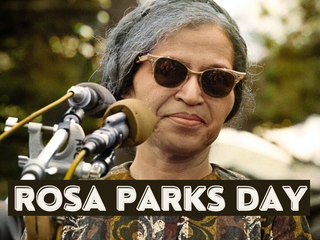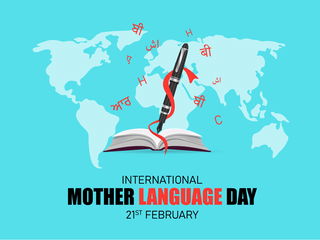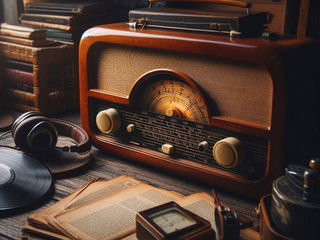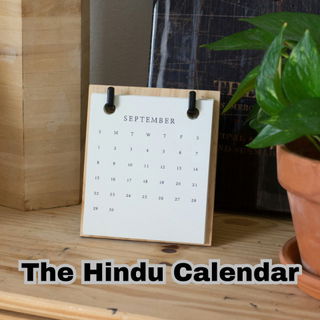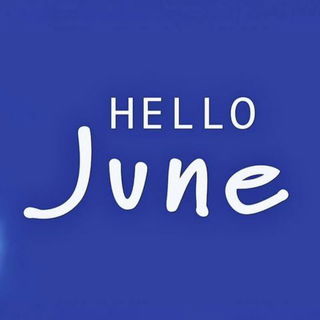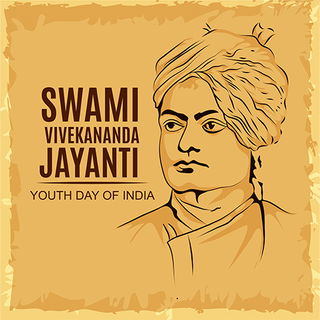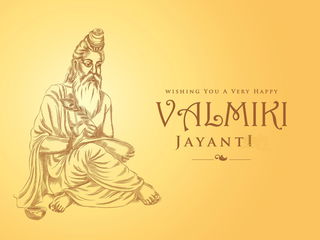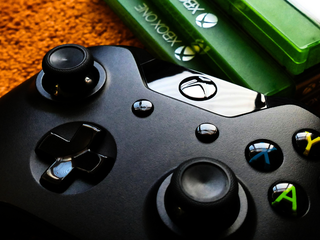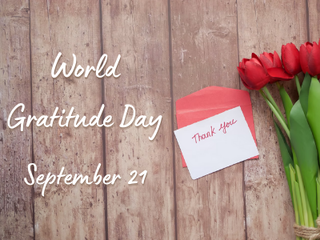- Calendar
- Calendar 2026
- September
- Holiday Hindi DIwas
Hindi DIwas
Holiday
Observed every year on 14 September, Hindi Diwas (Hindi Day) marks a momentous period in Indian history and is a day when we pay tribute to one of the official languages of India.
It's not just about the script or the grammar; it's about the boli, the bhaasha, the emotion that ties millions together through poems, films, conversations, and memories.
Whether it's “Namaste” at the start or “Phir milenge” at the end, Hindi holds a rhythm that's deeply rooted in who we are.
Origin of Hindi Diwas
Hindi Diwas honors the day in 1949 when the drafting of the Indian Constitution reached a historic consensus on the official languages of the country.
This compromise, known as the Munshi-Ayyangar formula, was the result of extensive debates within the Constituent Assembly of India.
At the heart of the debate was the question of which languages should hold official status in the newly-formed Republic of India.
Advocates of Hindi in Devanagari script aimed to make it the only official language of the country.
On the contrary, South Indian delegates wanted English to remain in use, concerned about language diversity. After lengthy discussions, the Munshi-Ayyangar formula was agreed upon.
The formula, later included in Articles 343 to 351 of the Indian Constitution, made Hindi the official language of the central government.
English was kept as a secondary official language for 15 years, allowing time to develop Hindi’s vocabulary. It also officially adopted the use of international Hindu-Arabic numerals.
Hindi Diwas serves as a reminder of this important moment in India's constitutional history and highlights the balancing of linguistic and cultural identities in a diverse nation.
The compromise set the stage for the future of Hindi as the official language, and the celebration of Hindi Diwas ensures that this legacy is remembered and honored.
History of Hindi
India's history is deeply ingrained in the Hindi language. It developed from an ancient language called Shauraseni Prakrit, which was spoken in central India around the 7th to 10th centuries.
Over time, this language evolved into several regional dialects, including Khari Boli, which became the foundation for modern Hindi.
The major turning point in the history of Hindi came during the Delhi Sultanate and the Mughal Empire. During these periods, Persian was the official language of the court.
As people from different linguistic backgrounds interacted in cities like Delhi and Lucknow, a new common language emerged.
This language blended the local dialects of Hindi with many Persian and Arabic words and became known as Hindustani. Hindustani was a language that was spoken by both Hindus and Muslims and was employed in daily life, poetry, and literature.
Subsequently, this universal language evolved into two divergent forms. One version used the Persian script and adopted more Persian and Arabic words; this became known as Urdu.
The other version used the Devanagari script and drew more from Sanskrit vocabulary; this came to be called Hindi.
Despite these differences, the spoken form of both remained quite similar and was widely understood across northern India.
During British rule in India, the British replaced Persian with Hindustani written in the Persian script as the official language in 1837. However, in the late 19th century, a movement began to promote Hindi written in the Devanagari script.
This resulted in a political and religious division between Hindi and Urdu, with Urdu being more closely associated with Muslims and Hindi with Hindus.
Bihar was the first Indian state to adopt Hindi as its official language in 1881, replacing Urdu.
This marked the beginning of Hindi being recognized as a distinct language.
Hindi was declared the official language of the Indian government in 1950, following India's independence in 1947.
Today, Standard Hindi is based on the Khari Boli dialect and continues to be the primary language of administration, education, media, and communication in much of northern and central India.
While Hindi and Urdu have different scripts and formal vocabularies, they remain closely related and continue to influence each other.
Observance and Celebrations
Hindi Diwas is celebrated across India, particularly in government offices, educational institutions, and cultural organizations.
The day is marked by various ceremonial events, including the presentation of awards that honor significant contributions to the Hindi language.
One of the highlights of the day is the Rajbhasha Awards, which are given to ministries, departments, public sector undertakings, and banks for their efforts in promoting the use of Hindi.
Additionally, prestigious awards such as the Rajbhasha Kirti Puraskar and Rajbhasha Gaurav Puraskar, presented by the Ministry of Home Affairs, recognize excellence in Hindi writing and its promotion.
These awards have been notably presented at official functions, with former President Pranab Mukherjee presenting them at Vigyan Bhavan in New Delhi.
It encourages the ongoing development and use of the language while maintaining respect for the multilingual nature of the nation.
Celebrating Hindi Diwas is not just about language; it’s a celebration of cultural identity, heritage, and the pursuit of inclusive growth in a diverse democracy.
Interesting Hindi Facts
- Hindi is not the national language of India, but one of the official languages alongside English.
- It is the fourth most spoken language in the world after English, Mandarin Chinese, and Spanish.
- Hindi and Urdu sound almost the same in speech but use different scripts and vocabulary origins.
- The word “Hindi” comes from the Persian word “Hind,” which referred to the land beyond the Indus River.
- Hindi became a prominent literary language only in the 19th century.
- The first Hindi novel, Pariksha Guru by Lala Srinivas Das, was published in 1882.
- Hindi is spoken in countries like Nepal, Mauritius, Fiji, Suriname, Trinidad & Tobago, South Africa, the US, UK, and New Zealand.
- The Devanagari script used for Hindi is phonetic, meaning words are pronounced as they’re written.
- World Hindi Day is celebrated every year on January 10 to promote the language globally.
- NASA once explored teaching Hindi to robots because of its widespread usage and structured grammar.
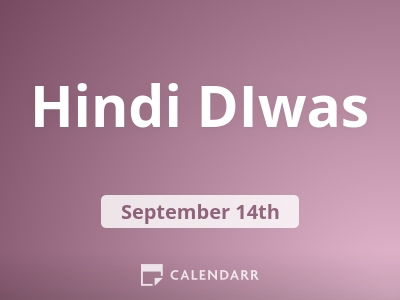
Other Celebrations
-
Jan 23 FriParakram Diwas Holiday
-
Jan 26 MonRepublic Day Holiday
-
Jan 30 FriMartyrs' Day (Shaheed Diwas)
-
Mar 22 Sun
-
Jul 26 Sun
-
Aug 28 Fri

Hindi DIwas - Next years
Tuesday, 14 September 2027
Thursday, 14 September 2028
Friday, 14 September 2029
